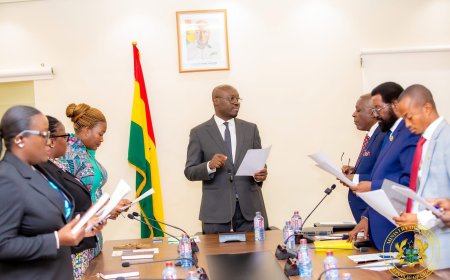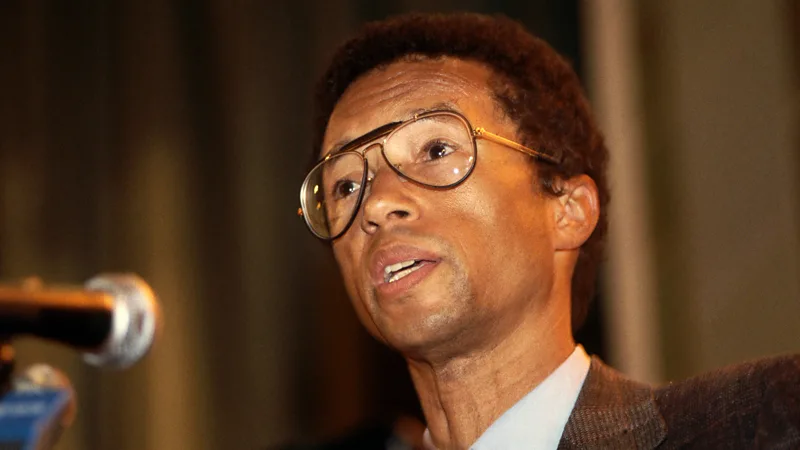Fighting Climate Change : The NGO Effect
Research work
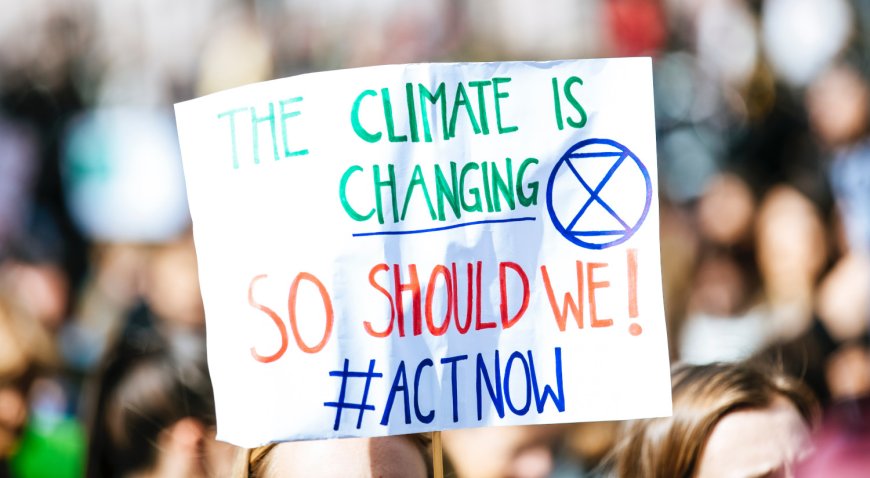
The Earth's climate is altering, sometimes owing to slower natural processes like shifts in ocean circulation, and sometimes due to unexpected events like huge volcanic eruptions.
Species and ecosystems have either adapted or died as a result of prior climatic changes.
While the global climate has been largely steady over the last 10,000 years—the duration of human civilization—regional changes in climatic patterns have had a major impact on human history, determining whether societies prospered or collapsed.
We now know that the converse is also true: human actions, such as the use of fossil fuels and deforestation, have had a significant impact on the Earth's climate.
Government agencies create public policies on climate change, greenhouse gas emissions, pollution, and clean water but Non-Governmental Organizations use more practical and effective initiatives such as climate science literacy programs(education), crowd-funding, negotiations, media and protests among others. Theses NGOs are very much powerful when they leverage these practical options in combating climate change.
The Earth Summit in Rio in June 1992 (Rio conference) is often described as a defining moment in how Non-Governmental Organizations are viewed in the climate change fight. That event was when NGOs were acknowledged as crucial actors in environmental negotiations and in the battle against climate change.
Non-Governmental Organizations as effective options in combating climate change
Climate change and environmental degradation are occurring at a rapid rate, endangering the planet's health. Scientists believe that climate-related phenomena are occurring at shorter intervals than ever before in history.
As a result, they endanger our ability to survive on this planet. The just concluded COP28 Climate Summit in Dubai debated on a number of subjects crucial to addressing the global climate crisis. The upcoming COP29, scheduled for Azerbaijan will also seek to find lasting solutions to climate change.
I understand that policies to decrease greenhouse gas emissions, and adjust to the unavoidable impacts of climate change are all crucial to the fight, however, climate change cannot be tackled solely through policy interventions.
I believe Non-Governmental Organzations with practical solutions are crucial in the fight against climate change.
The role of NGOs in different domains has been studied in some depth. Several papers investigate the contribution of NGOs to solving economic problems (Shanahan and Hopkins, 2007; Arenas et al., 2009), social issues (Karwacka and Kitzman, 2014; Drewniak, 2015; Sanzo et al., 2015; Herlin and Solitander, 2017; Huszlak, 2017), and environmental problems (Holmes and Smart, 2009; Sanzo et al., 2015). Some studies investigate the part played by NGOs in national development (Skouloudis et al., 2015) and local expansion (Holmes et al., 2015; Moldovan et al., 2016).
Pros of NGOs In combating Climate change
Climate Literacy
Climate-literate citizens are crucial for protecting sensitive ecosystems and creating resilient communities against catastrophic weather and climate catastrophes.
Climate literacy emphasizes the key principles and core concepts that people and communities should grasp about the Earth's climate system. This awareness helps us make better judgments regarding behaviors that enhance vulnerability.
Recognizing the implications of climate change and to take preventative measures in our lives and businesses, would mitigate these vulnerabilities.
And most of the time, these burdens, responsibilities and proofs fall on Non-Governmental Organizations.
Climate Science Literacy is an understanding of your influence on climate and climate’s influence on you and society.
A climate-literate person understands the essential principles of Earth’s climate system, knows how to assess scientifically credible information about climate, communicates about climate and climate change in a meaningful way, and is able to make informed and responsible decisions with regard to actions that may affect climate.
People who are climate science literate know that climate science can inform our decisions
They are aware of the fundamental relationship between climate and human life and the many ways in which climate has always played a role in human health.
They also have the ability to assess the validity of scientific arguments about climate and to use that information to support their decisions.
Case Study
In my home country Ghana, most NGOs who promote environnment and climate change actively run climate literacy and change programmes and they are mostly youth-led orgaizations.
These NGOs are doing massive work in the fight against climate change through their climate literacy programs. My NGO, Youth Education Development Extra(YEDx) is one such organzation with special focus on climate literacy, particularly among children of school-going age and the youth and communities.
The objectives of these NGOs are just to provide these young ones and the communities, basic understanding on the climate systems and how human activities can affect it.
In about three months, Ghana will witness the gathering of powerful youth-led NGOs in the capital Accra with the aim of contributing to shaping a sustainable future. The Local Conference of Youth (LCOY) is a YOUNGO(the official youth constituent of the United Framework Convention on Climate Change(UNFCCC) and my NGO, Youth Education Development Exta is a proud supporting organization of this year’s LCOY in Ghana.
Find the supporting organizations in the image below.

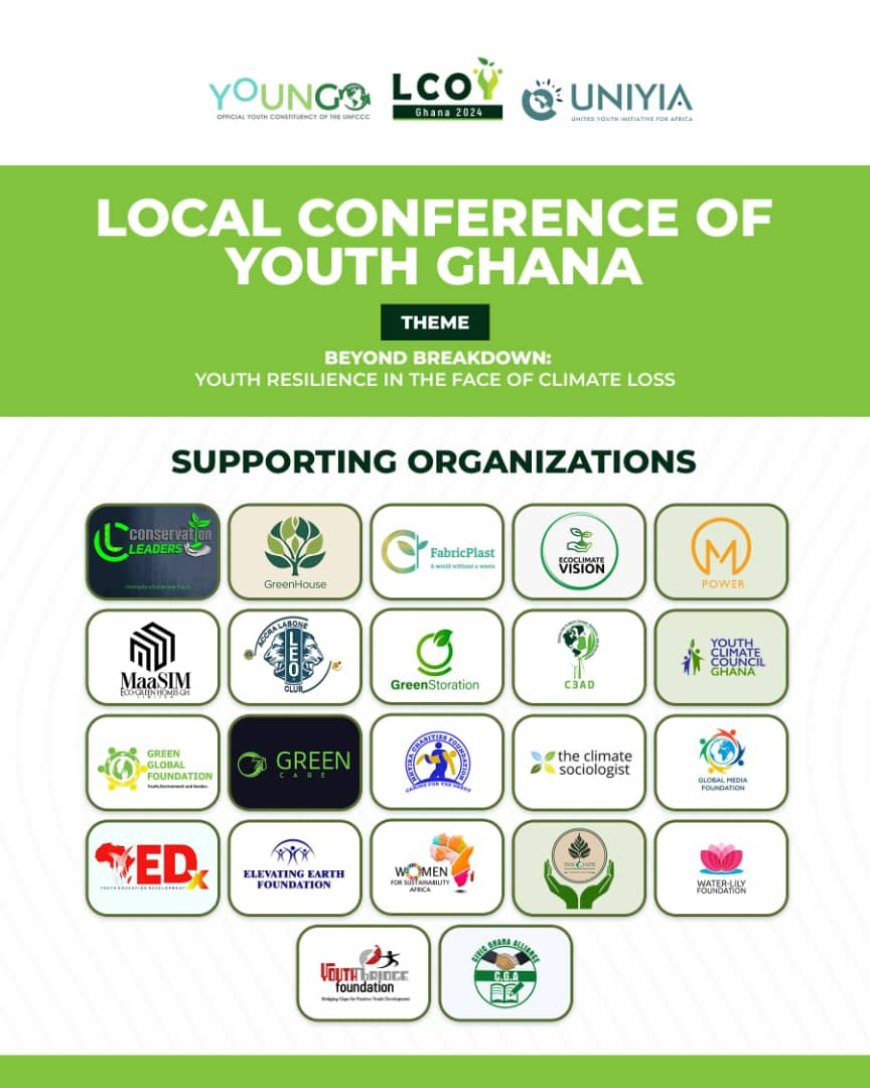
As co-founder, project head of Youth Education Development Extra(YEDx) and a climate change activist, I continue strive to know the importance of climate science literacy and how Climate information can be used to reduce vulnerabilities or enhance the resilience of communities and ecosystems affected by climate change. Continuing to improve scientific understanding of the climate system and the quality of reports to policy and decision-makers is crucial and that is why I purposely formulate climate change and education programmes for the youth and communities.
Find below images from previous YEDx climate change literacy programmes
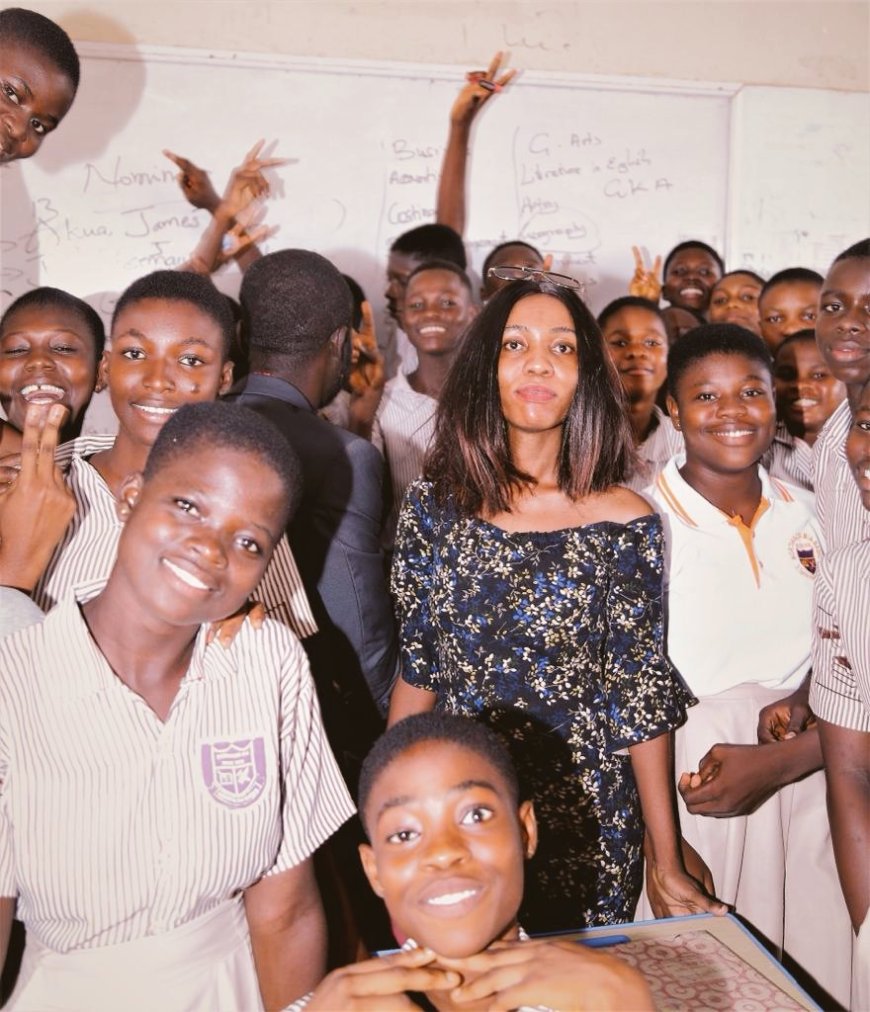
Youth Education Development Extra(YEDx) at one of their climate litetracy programs at Bortiano primary school in Accra Ghana in June 2023.{Co- Director, Florence Kyei(middle) in a pose with final year students of Bortiano Primary and Junior High School}

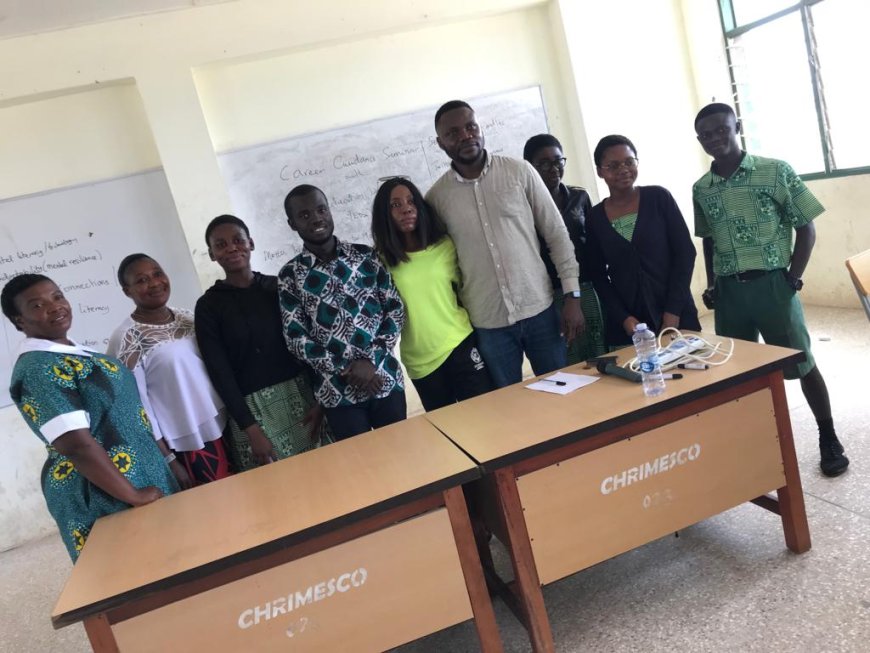
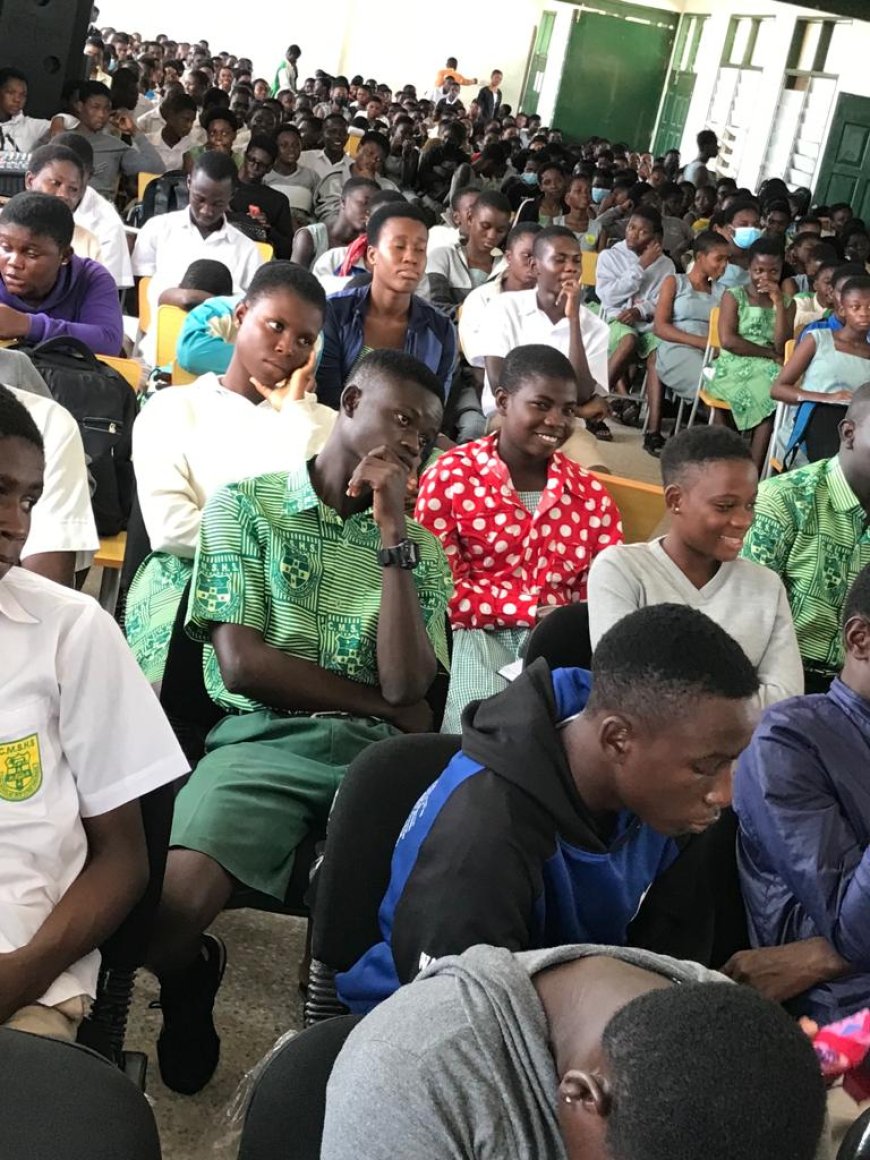
YEDx at Christian Methodist Senior High school in Accra, Ghana, during one of their many climate literacy workshops.
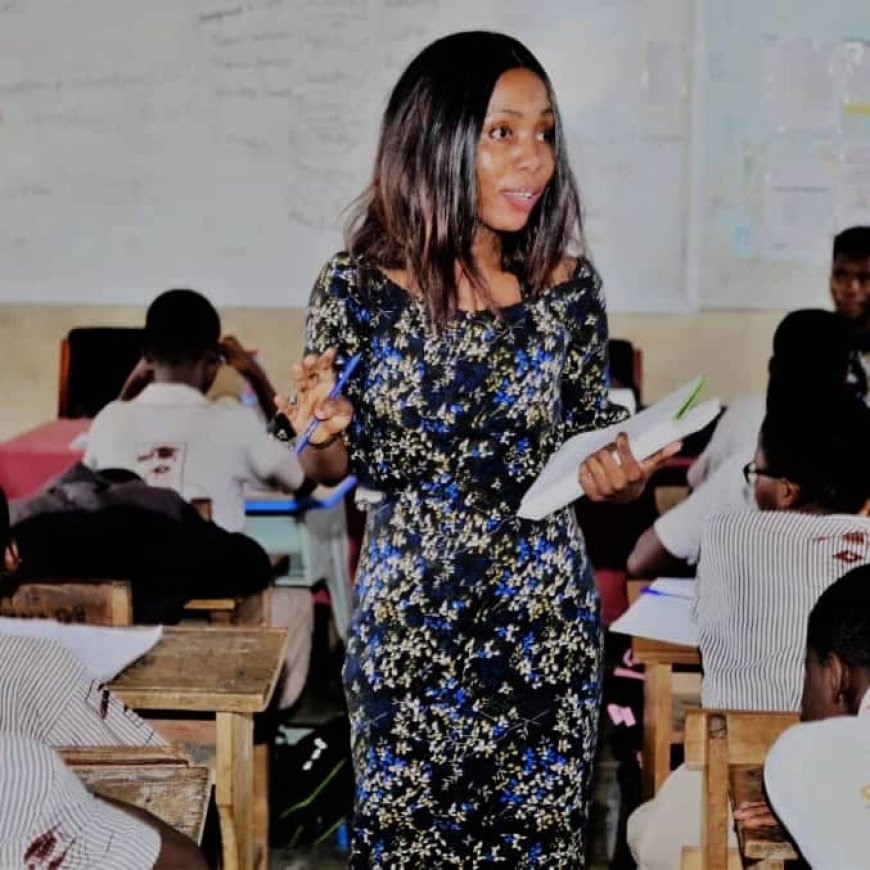
 YEDx Co-founder, Florence Kyei (middle) giving a lecture on Climate Change at Bortianor Junior High School in Accra in June 2023.
YEDx Co-founder, Florence Kyei (middle) giving a lecture on Climate Change at Bortianor Junior High School in Accra in June 2023.
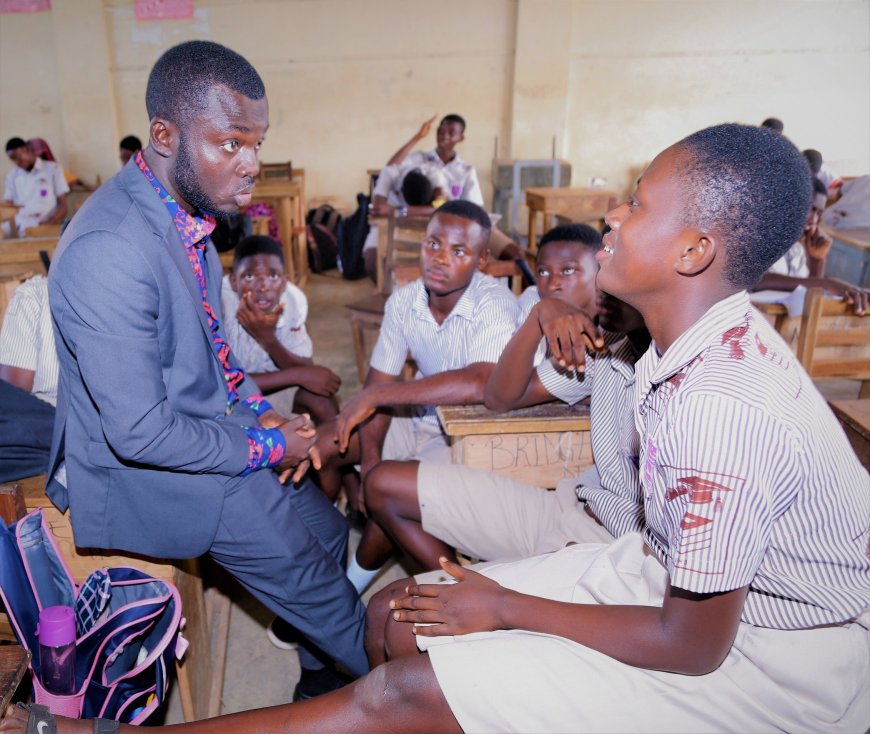
Executive Director of YEDx, Donald Akoto speaking to students of Bortiano Primary and Junior High school in during one of their many visits.
Note: Climate Literacy needs to be deepened due to decades of climate denial.
Climate Negotiations
Advocacy non-governmental groups may significantly impact climate discussions by using public pressure and media participation.
Environmental NGOs can pursue insider techniques by joining government delegations advisers or employ outsider techniques as lobbyists within the negotiation venue or as activist.
NGOs also monitor the implementation of international treaties. They have lobbying skills that allow them to be effective participants in the negotiations of environmental treaties.
Environmental Crowdfunding
Online crowdfunding for environmental NGOs has shown to be one of the most effective methods. Non-governmental organizations (NGOs) generate funding to overcome financial barriers that impede the advancement of initiatives to combat the global climate catastrophe.
Protests
Non-governmental organizations (NGOs) use demonstrations to influence climate discussions outside of conference centers. Their viability depends on a clear message, positive media attention, a critical mass of voters, and nonviolent protests.
Cons of Non-Governmental Organizations combating Climate change
NGOs face several barriers to the realization of their climate change activities due to their level of involvement in climate actions, and climate negotiations.
First, lack of financial resources is a major problem for most Climate NGOs and those involved in project implementation lack the resources to allow them to undertake other activities. Thus, the likelihood of participating in climate policy drafting decreases. The result is a split between NGOs involved in project implementation and NGOs contributing to policy formulation. (Youssef 2021)
Second, NGOs are mostly excluded from the drafting of government laws which has a negative effect on their activities and involvement in drafting strategy documents, and participating in climate change training and workshops. Involvement in law drafting could increase the capacity to attract funding and engage in climate change activities. Third, NGOs are non-profit organizations but in the “African culture” are associated to benevolent and non-remunerated activities. Paid staff implies more responsibilities.
Most NGOs in Africa and Ghana are not well organized and rely on one or two individuals which limits their ability to participate in policy and training.
Conclusion
African nations are expected to establish solid climate policies and programs to reduce the consequences of climate change. NGOs can play a significant role in these activities.
First, they should be active in climate policy.They should contribute more constructively to climate initiatives and negotiations. Government assistance will make NGOs more effective.
Also, implementation of the climate change programmes requires suitable effort, dedication, and clear communication among many players and stakeholders, including non-governmental organisations (NGOs).
Again, NGO skills and capacities need to be enhanced to increase influence on climate change policies.
Moreover, stronger and better supported NGOs would attract more funding which would allow greater participation in climate projects.
American Association for the Advancement of Science, Atlas of Science Literacy, Volume 2, Project 2061.
Arenas D, Lozano JM, and Albareda L (2009). The role of NGOs in CSR: Mutual perceptions among stakeholders. J Bus Ethics 88(1):175–197
Drewniak R (2015). Conditions of Cooperation between Companies and NGOs in the Field of Corporate Social Responsibility Activities: The Polish cases, Problems of Management in the 21st Century 10(2): 62–76
Herlin H, Solitander N (2017). Corporate social responsibility as relief from responsibility: NPO legitimizations for corporate partnerships in contested terrains. Crit Perspect Int Bus 13(1):2–22
Holmes S and Smart P (2009). Exploring open innovation practice in firm-nonprofit engagements: a corporate social responsibility perspective. R D Manag 39(4):394–409
Holmes M, Banda D, and Chawansky M (2015). Towards sustainable programme design? An examination of CSR initiatives within a Zambian SfD NGO. Int J Sport Manag Mark 16(1– 2):36–51
Huszlak W (2017). CSR practices in relations of enterprises with non-governmental organisations: an example of the cement industry, Research Papers of the Wroclaw University of Economics/Prace Naukowe Uniwersytetu Ekonomicznego we Wroclawiu 464: 43–56
Karwacka M, Kitzman K (2014). The socially engaged corporation - attitudes and knowledge related to collaboration with non-governmental organizations, foundations of management, Warsaw, 6(3): 35–46
Moldovan AM, Greenley M, and Lakatos SE (2016). Corporate social responsibility, NGOs and business partnerships for social sustainability. Rev Appl Soc-Econ Res 11(1):51–56
Sanzo M, Álvarez L, Rey M, García N (2015). Business–nonprofit partnerships: a new form of collaboration in a corporate responsibility and social innovation context. Serv Bus 9(4):611–636
Shanahan KJ, Hopkins CD (2007). Truths, half-truths, and deception - Perceived social responsibility and intent to donate for a nonprofit using implicature, truth, and duplicity in print advertising. J Advert 36(2):33–48
Skouloudis A, Evangelinos K, Malesios C (2015). Priorities and perceptions for corporate social responsibility: an NGO perspective. Corp Soc Responsib Environ Manag 22(2):95–112
Thomas R. Karl, Susan J. Hassol, Christopher D. Miller, and William L. Murray, editors, 2006Temperature Trends in the Lower Atmosphere: Steps for Understanding and Reconciling D
Adel Ben Youssef, Effectiveness and Constraints of NGOs on Climate Policies in Developing Countries: The Case of Tunisia
Source : Florence Kyei
The author is an Environmental & Climate Journalist and Lead Writer at Lead News.
Email: [email protected]
Linkedin: https://www.linkedin.com/in/florence-kyei-970764140
Twitter: https://x.com/evlogia_7


















